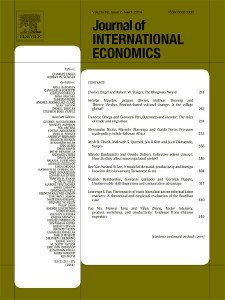
Haufler, A., Mardan, M. and Schindler, D. (2018). Double tax discrimination to attract FDI and fight profit shifting: The role of CFC rules Journal of International Economics, 114:25--43.
-
Affiliated author
-
Publication year2018
-
JournalJournal of International Economics
Governments worldwide use targeted tax policies to trade off the gains from increased FDI against the cost of excessive profit shifting by multinational firms. We show that nationally optimal tax systems generally incorporate both thin-capitalization rules, which tax discriminate between purely national and multinational firms, and controlled-foreign-company (CFC) rules, which discriminate between home-based and foreign-based multinationals. In the non-cooperative policy equilibrium both thin-capitalization rules and CFC rules are set more lenient than if tax policies were chosen cooperatively, implying an {\textquoteleft}excessive{\textquoteright} tax discrimination in favor of multinationals. We also analyze the effects of reduced transaction costs for FDI and reduced costs for debt shifting on the optimal policy mix. Our results correspond to the observed developments of anti-avoidance rules in OECD countries.